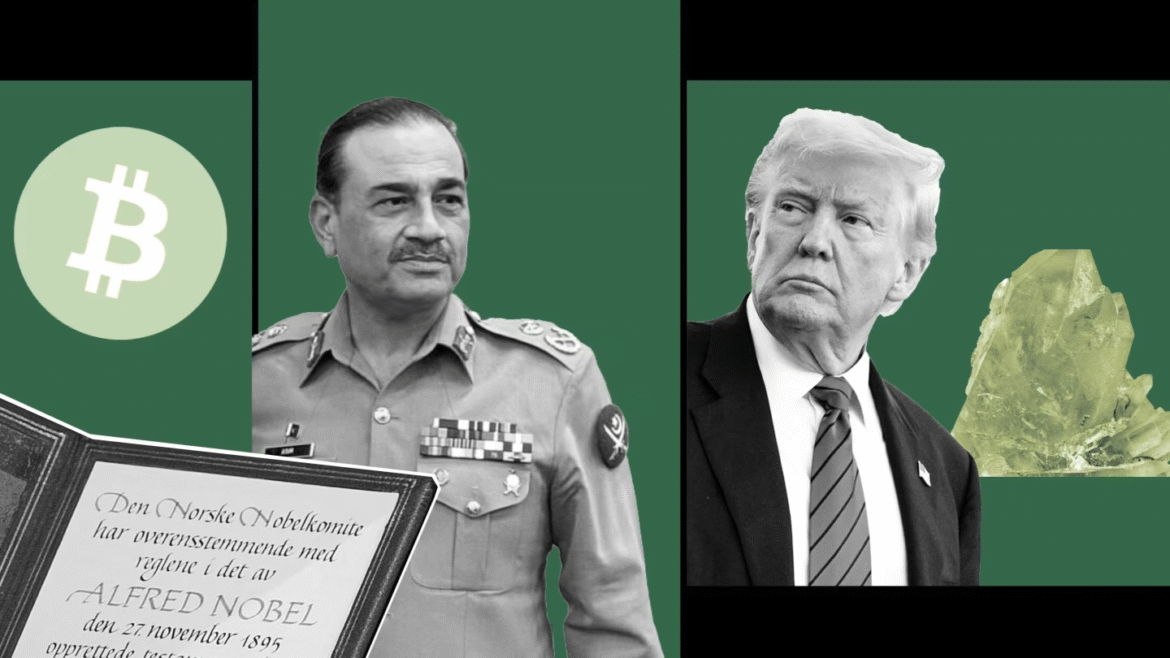AI Generated Summary
- Yet, instead of condemnation, Munir was received not as a pariah, but as a power broker—meeting former President Donald Trump for a private lunch at the White House, the first such honor accorded the head of Pakistan’s army in America’s capital, absent any civilian Pakistani oversight.
- Continue granting Pakistan’s military unchecked access to US policy circles, or finally recognize that Munir’s nuclear rhetoric is not the sign of a reliable partner, but the shrill cry of a rogue state teetering on the edge.
- They exposed, as Rubin argued, a pattern of conduct that underscores Pakistan’s unsuitability as a non-NATO ally, and the need for the US to consider formally designating it a state sponsor of terrorism.
If history ever needed a grim punchline, it arrived in the form of Pakistan’s Army Chief, Asim Munir, threatening from American soil that his country would “take half the world down” with nuclear weapons if pushed to the brink. For anyone invested in global security, this was not mere sabre-rattling—it was an existential alarm from the mouth of a man who, to echo former Pentagon official Michael Rubin, is “Osama bin Laden in a suit”.
Rubin’s comparison is not hyperbolic. Pakistan’s military establishment—long accused of fostering terrorist groups, playing double games on counterterrorism, and wielding unchecked nuclear threats—has repeatedly demonstrated its willingness to leverage doomsday rhetoric for diplomatic clout. Munir’s remarks in Tampa, Florida, weren’t an isolated moment of bravado; they exposed, as Rubin argued, a pattern of conduct that underscores Pakistan’s unsuitability as a non-NATO ally, and the need for the US to consider formally designating it a state sponsor of terrorism.
America’s Strategic Blindness
Yet, instead of condemnation, Munir was received not as a pariah, but as a power broker—meeting former President Donald Trump for a private lunch at the White House, the first such honor accorded the head of Pakistan’s army in America’s capital, absent any civilian Pakistani oversight. Trump’s reasoning was transactional: Munir purportedly helped contain a four-day mini-war between India and Pakistan, thus “preventing a nuclear conflict”. Therein lies America’s strategic blind spot—the belief that cozying up to Pakistan’s generals ensures regional stability, even as it rewards and legitimizes reckless, rogue conduct.
Pakistan: Partner or Powder Keg?
Pakistan’s reputation as a “terrorist safe haven” is well documented by Western intelligence agencies and periodically acknowledged even by its own politicians. The shadow of Abbottabad—where Osama bin Laden was found living a stone’s throw from Pakistan’s premier military academy—still looms large. Pakistan’s military, far from acting as a bulwark against extremism, remains entangled with a constellation of militant outfits. Munir’s nuclear threat therefore cannot be dismissed as mere posturing; it raises real anxieties about command and control, and the potential for catastrophic escalation or proliferation to non-state actors, as Indian officials have loudly warned.
Time for Consequences
For Rubin, the solution is blunt: strip Pakistan of its major non-NATO ally status, expel Munir, and, if necessary, consider military operations to secure Pakistan’s nuclear arsenal in the event of state failure. This is not just rhetorical bombast; it is a function of accumulated distrust, borne out of Pakistan’s decades-long dance with terrorism and nuclear blackmail.
The US can no longer afford to indulge Pakistan’s “managed decline” with bland reassurances. If a state’s highest-ranking military official openly invokes the language of apocalypse as a diplomatic instrument, the international community must recognize the gravity of the threat. Diplomatic engagement, sanctions, and—where warranted—clear legislative action must replace appeasement. Pakistan’s generals must learn that nuclear nihilism and terrorist patronage are not currencies for global influence, but fast tracks to pariah status.
The Choice Ahead
For American policymakers, the path forward is stark. Continue granting Pakistan’s military unchecked access to US policy circles, or finally recognize that Munir’s nuclear rhetoric is not the sign of a reliable partner, but the shrill cry of a rogue state teetering on the edge. America’s strategic interests—and global security—require the courage to choose the latter.




